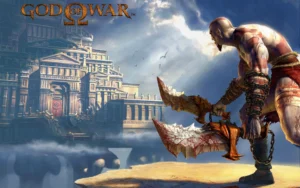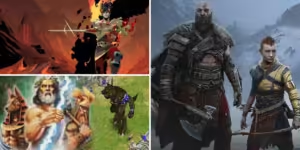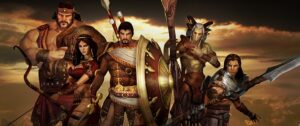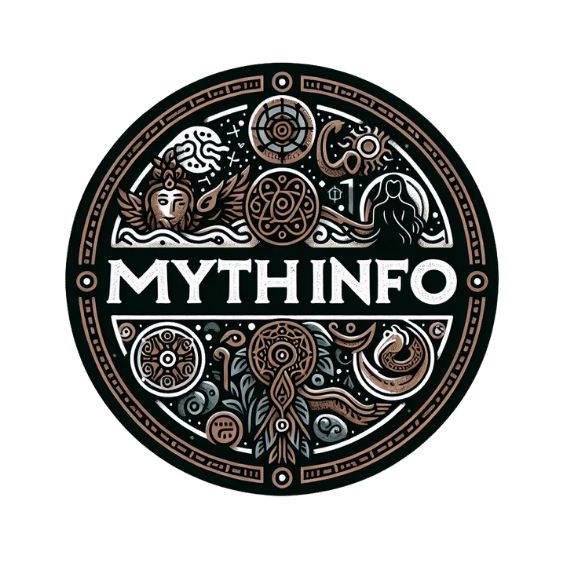
Introduction
Greek mythology has always been a rich source of inspiration for various forms of art and media. In modern video games, its influence is profound and far-reaching. The gods, heroes, and mythical creatures from ancient Greece have been reimagined and reinterpreted in countless ways, providing a deep well of content for game developers. This article explores the enduring influence of Greek mythology in modern video games, examining its impact on storytelling, character development, and game design.
The Appeal of Greek Mythology
Greek mythology offers a vast array of stories and characters, each with unique traits and tales of heroism, tragedy, and intrigue. These elements naturally lend themselves to engaging narratives and complex characters in video games. The myths are timeless, dealing with universal themes such as power, betrayal, love, and fate, which resonate with players across different cultures and generations.
Iconic Games Inspired by Greek Mythology
God of War Series
The “God of War” series is one of the most notable examples of Greek mythology in video games. The franchise follows Kratos, a Spartan warrior, as he battles against gods and monsters from Greek mythology. The series is known for its epic storytelling, intense combat, and deep character development. Each game in the series intricately weaves mythological tales with original narratives, creating a rich and immersive experience for players.
Assassin’s Creed Odyssey
“Assassin’s Creed Odyssey” takes players on a journey through ancient Greece, allowing them to explore historical locations and encounter legendary figures from Greek mythology. The game incorporates mythological elements such as the Minotaur, Medusa, and other mythical creatures, blending historical fiction with fantasy. This combination provides a captivating experience that educates players about Greek culture while entertaining them with thrilling gameplay.
Hades
“Hades,” developed by Supergiant Games, is a rogue-like dungeon crawler that has gained critical acclaim for its innovative gameplay and storytelling. Players control Zagreus, the son of Hades, as he attempts to escape the Underworld. The game features various gods and heroes from Greek mythology, each with distinct personalities and abilities. “Hades” stands out for its character-driven narrative and the dynamic relationships between the protagonist and the gods.
Storytelling and Character Development
Greek mythology provides a rich tapestry for storytelling and character development in video games. The myths are filled with complex characters whose motivations and actions drive compelling narratives. Game developers often draw on these stories to create multi-dimensional characters and intricate plots.
For example, in “God of War,” Kratos’ character is deeply influenced by the tragic elements of Greek mythology. His quest for revenge against the gods is rooted in the themes of fate and hubris, common in Greek tragedies. Similarly, the relationships between characters in “Hades” reflect the intricate dynamics of mythological tales, with gods and heroes displaying a range of emotions and moral complexities.
Game Design and Mechanics
Greek mythology also influences game design and mechanics. Many games incorporate mythological elements into their gameplay, such as using gods’ powers as abilities or including mythical creatures as enemies. These elements add depth and variety to the gameplay, making it more engaging for players.
In “Assassin’s Creed Odyssey,” players can acquire legendary weapons and armor inspired by Greek myths, enhancing their abilities and adding a layer of mythological authenticity to the game. The design of levels and environments often draws inspiration from ancient Greek architecture and landscapes, providing an immersive experience that transports players to the world of Greek myths.
Educational Value
Beyond entertainment, games inspired by Greek mythology can have educational value. By incorporating historical and mythological elements, these games can spark players’ interest in learning more about ancient Greece and its culture. Games like “Assassin’s Creed Odyssey” provide detailed historical contexts and encourage players to explore and understand the significance of various mythological and historical figures.
Conclusion
The enduring influence of Greek mythology in modern video games is a testament to its timeless appeal and versatility. From epic narratives and complex characters to innovative game design and mechanics, Greek mythology continues to inspire and captivate players. As technology advances and storytelling in video games evolves, it is likely that Greek mythology will remain a rich source of inspiration for game developers, ensuring its presence in the gaming industry for years to come.

